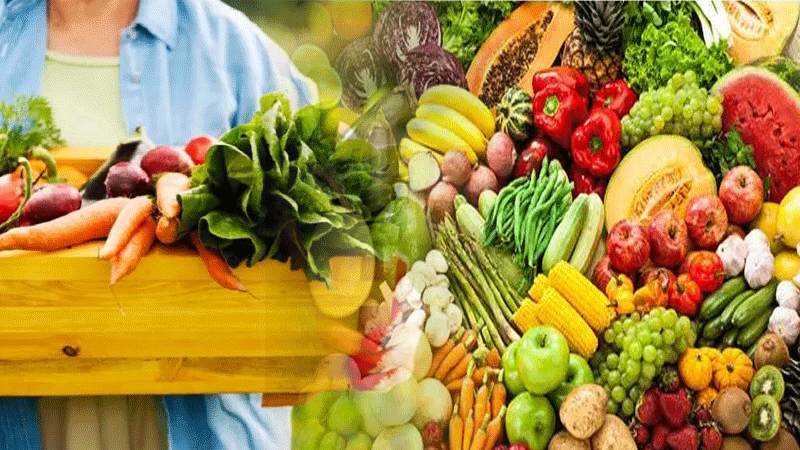Carrots are one of the top ten most economically significant vegetable crops worldwide, both in terms of production area and market value.

Carrot is a root vegetable of the Apiaceae family, the second most widely grown vegetable in Pakistan and the fifth in Europe. Carrots are one of the top ten most economically significant vegetable crops worldwide, both in terms of production area and market value. It occupies a prominent position among winter vegetables and is one of the most extensively grown and consumed vegetables in Pakistan.
Over 28.7 thousand hectares, 728.137 thousand tonnes of carrots are produced each year. The national average carrot production is hardly 25.3 tonnes per hectare in comparison to other modern carrot producing countries, such as Belgium (47.64 tonnes per hectare), Denmark (44.29 tonnes per hectare), and the United Kingdom (44.28 tonnes per hectare).
Moreover, neighboring countries China and India are also getting higher average yields, i.e., 38.54 and 30 tonnes per hectare, respectively. According to the United Nations COMTRADE database on international trade, Pakistan supplied frozen or chilled carrots, turnips, and other edible roots to Kuwait in 2021 for a total of US$29.89 thousand.
Carrots are excellent sources of nutrients; they are a major source of vitamins, fiber, minerals, containing significant amounts of vitamin A, vitamin K, B1, B2, B6, C, folic acid, iron, manganese, niacin, calcium, phosphorus, potassium, copper, and pantothenic acid. It also includes alpha-beta carotene, lutein, poly-acetylenes like falcarindiol and falcarinol, lycopene, cyanidins, caffeic acid, and coumaric acid, which are probiotics as well as antioxidants.
With moisture, protein, fat, carbs, fibre, and sugars ranging from 84 to 95%, 0.6 to 2.0%, 0.2 to 0.7, 9.58 to 10.6%, 5.4 to 7.5%, 0.6 to 2.9%, and 5.4 to 7.5%, respectively, carrots are recognised as vitaminized foods and are excellent sources of carotene and ascorbic acid.
Carrot fiber effectively prevents constipation and protects the gut from toxins that can lead to colon cancer. Furthermore, vitamin B6 is necessary for a proper immune response, while calcium and vitamin K are important for bone and tooth health. Carrots contain vitamin C, which promotes iron absorption and use, infection prevention, and the production of antibodies that support your immune system. Potassium helps control blood pressure.
Important antioxidants found in carrots guard against oxidative damage to body cells by scavenging dangerous free radicals. They also help prevent sunlight damage to the skin and heart. Carotenoids are used to help reduce insulin resistance; they are also responsible for the bright orange color of orange carrots.
The body converts beta-carotene into vitamin A, which is abundant in carotenoids, and also improves the sight of your eyes. Additionally, it is used to reduce the risk of many types of cancer. It was discovered that rural adult females in Pakistan, aged 20 to 23, have an 18.95% vitamin A deficiency.
Carrot greens (leaves) were used to cover wounds in earlier centuries due to their mild antiseptic qualities. Furthermore, they were chewed to produce fresh breath and to ease gum inflammation and common toothaches. Compared to whole carrots, carrot juice contains more sugar and less fiber. Fiber helps lower cholesterol levels and promote weight management.
Carrots are winter vegetables used in a variety of cuisines to add flavour and texture; they are also consumed as snacks. Their crisp texture gives meat dishes, salads, pasta, and other foods an exclusive and savoury touch. It can be utilised as a raw material in the food, pharmaceutical, and cosmetic sectors.
They can be diced, canned, or packaged in a sealed nylon bag and sold to large supermarkets that allow customers to pick them up when they are needed. Raw or cooked, carrots can be eaten, and they can also be processed to make products with additional value, including canned carrots, candies, kheer, chips, halwa, juice, beverage powder, preserves, and products with intermediate moisture levels.
Using carrots as blending agents in beverages, wine, soups, stews, curries, pies, and jams is already unusual. The leaves were also brewed into tea, which was thought to have cleansing properties. In recent years, juicing has become more popular and has become a multimillion-dollar industry.
Carrots are a regular ingredient in many drinks since their flavour blends well with many other fruits and vegetables. Carrots’ rich nutritional content places them on an equal footing with apples and other nutrient-dense fruits.
Improving carrot productivity in Pakistan can help not just enhance farm output but also portray the land and agricultural business as a profitable industry. Carrot is a major winter vegetable and one of the most important vegetables grown and consumed in Pakistan.
It was determined that the government and private sector should collaborate to achieve the goals for the betterment of the local population, and this may act as an example for other developing countries.
Processing industries should be built in major carrot production locations to increase crop viability for farmers, which also provides employment opportunities for the local population and contributes considerably to the balanced diet of the local people and improves their health.